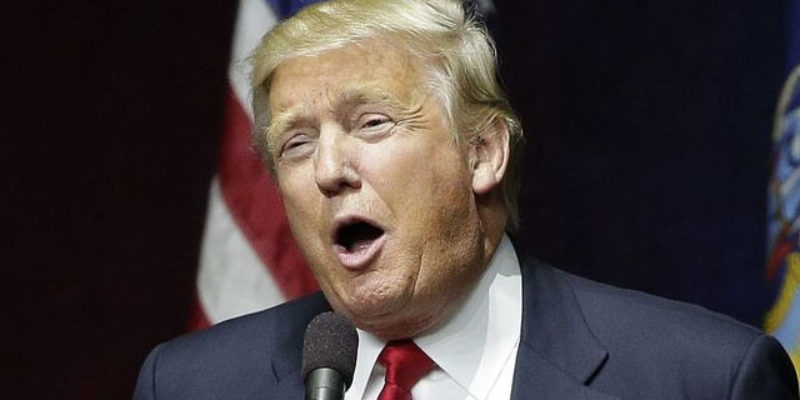An interesting poll result from Rasmussen released today – people really aren’t too torqued up about the fact Donald Trump took a big business loss in 1995 and likely carried those losses forward to wipe out taxable income in future years…
The leak of Donald Trump’s 1995 income tax returns showing substantial financial losses that appear to have allowed him to avoid paying taxes for 18 years sent the media into a frenzy last week. But most voters say such behavior is par for the course in the business world and that a candidate’s policy positions are more important than how much he or she has paid in taxes.
A new Rasmussen Reports national telephone and online survey finds that 83% of Likely U.S. Voters believe that when most businessmen pay their taxes, they try to pay as little as possible. Only 12% feel they are more concerned with paying their fair share.
That’s not the specific question raised by all the New York Times hubbub of a week ago, but it’s close enough. Everybody knows that if you’re in business it does you no good to overpay your taxes – your capital can be put to better use by the one who earned it than the federal government.
Which was the subject of a certain column that popped up at the American Spectator this morning…
But for the purposes of this column we will assume that what the Democrats, the Clinton campaign, and the New York Times, among which there are only imperceptible differences, have on Trump’s taxes they have already delivered to the public eye. And if that is true, Trump absolutely should have disclosed his returns.
Because he has nothing to be ashamed of.
At least not politically. No business leader likes to admit of a major financial reversal; to a real estate magnate, for example, the evidence of a deal gone bad or a deep pool of red ink can be a major disgrace and the loss of much of a hard-won reputation as a winner. In Trump’s case that would seem to be doubly true; his entire brand is based on selling himself as smarter, tougher, harder-working and shrewder than the competition, and the knowledge that 21 years ago he took almost a billion-dollar bath can’t be a pleasant memory.
But pride is one thing and politics is another.
The assumption, which we can expect could be completely wrong, is that what the New York Times published is the only bit of leakage on Trump’s taxes we’ll see in this election cycle. What’s more likely is that there will be multiple bombs of increasing strength about Trump’s taxes exploding between now and a few days prior to the election. Still, the fact that the Times chose to run with something that reflects the idea that there is something untoward about carrying-forward tax losses is instructive…
Most disturbing here is the idea that Trump got some sort of government bailout because the law allows him to have carried a loss forward and thus wash away income for tax purposes in years following 1995. This flies in the face of fundamental principles of economics, as our readers know — if you don’t allow an investor to carry forward a loss he incurred on a bad investment, he will cut down on those investments he does make and the economy won’t benefit from the circulation of his money.
Ryan Ellis of Forbes explained this well…
In fact, a net operating loss is very common in businesses. As Alan Cole of the Tax Foundation pointed out this morning, about 1 million taxpayers had an NOL in 1995. It results from business deductions exceeding business income in a particular year. Under tax rules, this loss can be carried back up to two years, and carried forward up to twenty years. If this is a “loophole,” what are these political reporters suggesting? That a business loss should simply be eaten by the taxpayer? That Uncle Sam should be a full partner in your profits but not in your losses? How is that fair?
But it’s clear that the howling dunces who think Trump’s potentially carrying forward of his 1995 loss to minimize his tax burden in better years down the road don’t understand the fundamental principles of economics.
The Rasmussen poll indicates this leftist bilge doesn’t fly with voters, which is a good thing. It means Trump’s problems in polling of late don’t stem from the tax stuff. Which isn’t particularly good news for Trump, but not bad news for our culture. That’s a silver lining mid a pretty bleak election cycle.
Advertisement
Advertisement

